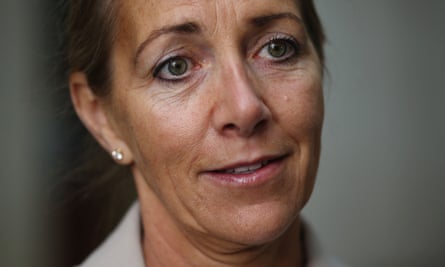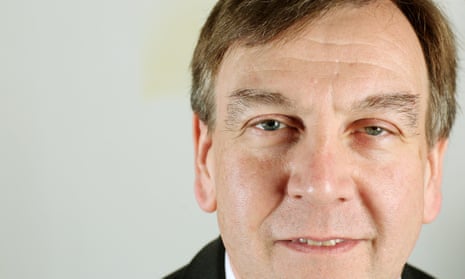The government is to launch a fundamental review of the BBC, which could call into question its key commitment to increasing the licence fee in line with inflation.
Culture secretary John Whittingdale could spark a fresh row with the BBC on Thursday if, as seems likely, the green paper reopens the funding deal sealed between the government and the corporation only last week, by considering cuts to major services.
At risk could be the popular programming such as Strictly Come Dancing or The Great British Bake Off, which help drive 97% of the British public to use BBC services for at least 18 hours a week.
Under the terms of the funding settlement, the BBC negotiated certain concessions in return for agreeing to pay for free TV licences for the over 75s. Among the most important of these concessions, according to BBC insiders, was the agreement to link the £145.50 annual charge with the consumer price index (CPI) for five years, allowing it to increase in line with the rate of inflation each year.
However, Whittingdale is understood to have insisted that the CPI link was made “subject to the conclusions of the charter review in relation to the purposes and scope of the BBC”. The word “scale” was removed from the agreement at the request of the BBC, but culture department government officials have said that if the review found the BBC had grown too large in a certain area, that would inevitably affect the BBC’s size. Such a change would call into question both the amount of the licence fee and potentially the inflation link.
In response to questions in the House of Commons, Whittingdale said the government would “consider all aspects of the BBC’s activities, its scope and scale, its funding, and how it is governed”.
A BBC insider said that an attempt to cut the licence fee from current levels over the next five years, or row back on the index link, would “breach the agreement” made with Whittingdale and the chancellor, George Osborne. What recourse it would have if the charter review ends with agreement for a smaller BBC is unclear.
In an interview with the Guardian, Rona Fairhead, chair of the BBC Trust, said that both the chancellor and culture secretary had assured her that only a very fundamental change would scupper the inflation-linked commitment.
Chris Bryant, shadow culture secretary, has said the agreement leaves a “lot of wriggle room” for the government to renege on its part of the bargain.
The green paper, to be launched with an oral statement to the House of Commons at midday on Thursday, is expected to consider changing the way the BBC is funded in the long term, while committing to the licence fee for at least five years. In a report written by Whittingdale in February, he indicated that a household levy such as that used to pay for public service television in Germany could work after the next 10-year charter review period.

The paper is also expected to call for an end to the BBC Trust – the system of governance introduced 10 years ago, and called a “busted flush” before the election by an influential committee of MPs chaired by Whittingdale. Given criticism of the trust’s role as both cheerleader and regulator, the green paper is expected to back a unitary board within the BBC and an external regulator. The idea of handing regulation over to an external existing regulator, such as Ofcom, or setting up a new body, dubbed OfBeeb, will be opened up for consultation.
Whittingdale has previously asked why the BBC continues to produce popular entertainment programmes when they could be made by commercial rivals. The green paper is likely to consider a future for the BBC in which it offers a far narrower range of public service content, such as children’s television and documentaries.
Opponents to this could include the majority of licence fee payers and the independent production sector, which has argued against a BBC that simply offers programming that commercially funded broadcasters can’t afford. On Tuesday, the BBC Trust said that six out of 10 licence fee payers said they wanted the BBC to continue to offer entertainment.
The eight-strong advisory committee of industry experts, drawn mainly from the commercial sector, met for the first time on Wednesday and were given a draft of the green paper.
The government will also publish the Perry report on whether to decriminalise non-payment of the licence fee. Making non-payment a civil offence is likely to cost a further £200m, although the government may row back on this plan given the other funding uncertainties.

Comments (…)
Sign in or create your Guardian account to join the discussion